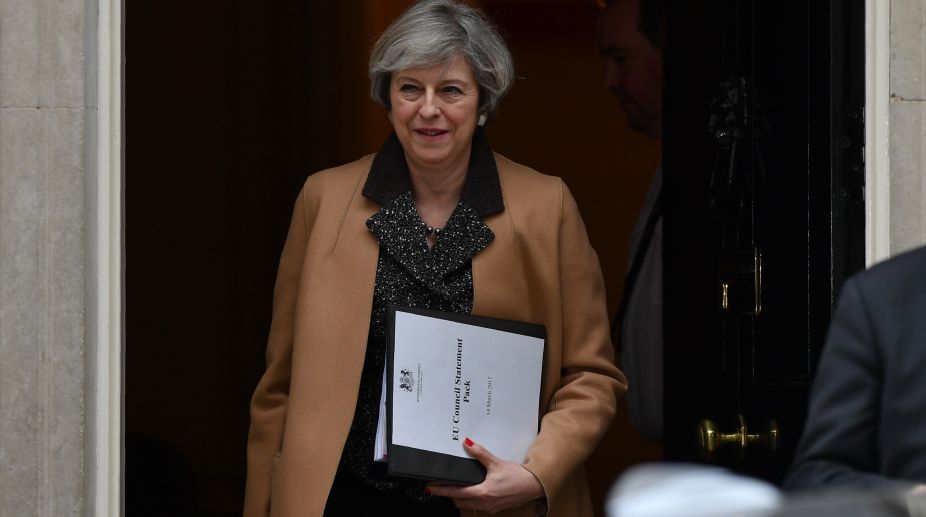Brexit pangs
Brexit, once hailed as a grand natural experiment for economists to dissect the repercussions of leaving a low-friction trade environment, has proven messier than anticipated.

British Prime Minister Theresa May (Photo: AFP)
The lack of clarity was reinforced when May’s foreign secretary, Boris Johnson, laid out his own vision for Brexit in a newspaper article last weekend.
Advertisement
The prime minister has insisted her government was “driven from the front”, but Johnson’s intervention has raised the stakes.
Advertisement
A senior official in Brussels said there were “high expectations” for Friday’s speech, which is likely to address three blocked subjects — money, the Irish border and the rights of EU nations.
Businesses are also watching closely.
The head of the CBI lobby group of business leaders, Carolyn Fairbairn, warned the risks of leaving the EU without a deal felt “all too real”.
A fourth round of talks with the European Commission are due to begin next week and the question of Britain’s financial settlement remains a significant stumbling block.
Without progress, EU leaders are unlikely to accept Britain’s request to move the negotiations on to the future trading relationship at their next summit in October.
“The onus is on the British to come up with a serious offer to move the talks forward,” Charles Grant, director of the Centre for European Reform, told AFP.
“Theresa May needs to make a serious offer on the money that she hasn’t made so far. And on the transition, she needs to say what she wants.”
The Financial Times reported that May would offer to meet Britain’s commitments under the current EU budget, which runs to 2020, worth at least 20 billion euros (USD 24 billion).
This would mean continued payments during a transition deal that Britain wants to bridge the gap between Brexit in March 2019 and the implementation of a new trading arrangement.
A major problem for May is that her ministers still disagree on the future shape of Brexit.
In his 4,000-word article, Johnson — a leading voice for Brexit in last year’s referendum campaign — argued for a clean break with the EU, including on financial matters.
The foreign secretary, who has long held leadership ambitions, subsequently denied reports he had threatened to resign, and insisted the cabinet was as united as a “nest of singing birds”.
Johnson’s move highlighted the fragility of May’s position, after her Conservatives lost their parliamentary majority in June’s snap election.
Senior ministers are expected to join the prime minister in Florence, a place her office called the “historical heart” of Europe.
But some commentators have noted that the Italian city was also home to Machiavelli, the Renaissance philosopher and author of “The Prince” who has become a byword for slippery politicians.
A cartoon in the Daily Telegraph today had Johnson grappling with other ministers and snakes dubbed “Brexitus”, an apparent reference to a sculpture in the Uffizi Gallery.
The Times, meanwhile, depicted him as King Kong, holding May in one hand as he swung on the famous dome of Florence’s cathedral.
Johnson has long cultivated a reputation as a lovable buffoon, but European agriculture commissioner Phil Hogan said he was a “diminished figure” — and warned May against following his lead.
“If Mrs May is as vague on the three questions as Mr Johnson was… then the signs will not be good,” he told London’s Evening Standard.
The prime minister has called a special cabinet meeting for tomorrow morning, where she is expected to brief ministers — and ensure they fall in line.
Former Conservative leader William Hague urged colleagues to rally round.
“The period of negotiating publicly with each other is over… the time for negotiating in earnest with the EU has begun,” he said. (AFP)
Advertisement